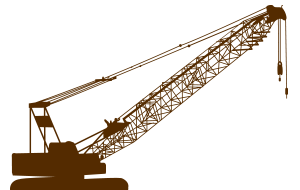No. Each state that has a certification procedure has different requirements and laws. While national certification is universal in the United States, several states such as Hawaiʻi (and some cities) require separate certification and payment in their jurisdiction. If you want to work on the Islands, you must be certified here. Military operators in Hawaiʻi ...
Read More I’m currently certified in another State. Am I permitted to work legally in Hawaiʻi?
Archives by Month:
- January 2026
- June 2020
- March 2020
- January 2020
- August 2019
- July 2019
- March 2019
- January 2019
- November 2018
- August 2017
- February 2017
- September 2016
No. Certification is a process to establish minimum standards for operators in our State. As a result, the process does not mean to imply or verify all operators as qualified. Federal law specifically designates employers as the party responsible for insuring all employees are qualified (as well as certified).
No problem! As a certified HMOAB member, replacement and renewal cards are provided without charge. Just call the office at (808) 586-8146 or write [email protected] for further assistance and provide your current NCCCO (or other) number.
Currently, there are ten different certification specialties: Tower crane operator Service truck crane Overhead cranes Boom truck fixed cab Lattice boom trucks Lattice boom crawler cranes Small telescopic boom cranes Large telescopic boom cranes Stationary control cranes Rotating control cranes
All applicants for certification undergo several steps initially, including a health screening and criminal background check. Applicants must also obtain national certification before State clearance is granted. The Hawaiʻi Occupational Safety and Health Division is the office responsible for compliance of certification requirements at the work site.
Who pays for an individual certification is between the applicant and the other entities, however the fees are only one-hundred dollars ($100) per year (dependent on national certification dates), with up to five years certified at a time. There is also a one-time, non-refundable initial application fee of fifty dollars ($50) per applicant. You may ...
Read More How much is certification and can my union or employer pay my fees?
Generally, the State of Hawaiʻi is most concerned with safe work sites and practices. If your troubles are not connected to the construction trades or recent substance abuse, and if you answer truthfully on the application form, you should be fine for State certification.
Applicants must present separate copies of the following documents: Two current forms of identification from a list of seven approved sources such as a military or Hawaiʻi State ID, driver’s license, passport or TWIC card, and/or notarized copies of one’s Social Security card and/or birth certificate. A physical examination certificate must be provided from the ...
Read More What records are required for certification?
You can begin the online application process by clicking here. Login with your username and password. If you do not have an ehawaii account, you can Sign Up as a new user. You can also mail an application with check or money order payable to “Department of Labor” to HMOAB Dept of Labor, 830 Punchbowl ...
Read More How do I begin the certification process?
All operators, whether an independent contractor or a company hire, using equipment to lift amounts of one ton or more, and at least 21 years of age, are required by State law to have a current certification. State laws also require operators to possess the necessary training, experience, and qualifications to move loads safely at ...
Read More Who must be certified and how often must it be done?
